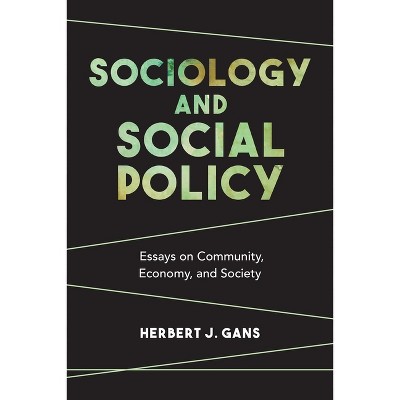Sponsored

How Civic Action Works - (Princeton Studies in Cultural Sociology) by Paul Lichterman (Paperback)
$35.00Save $2.00 (5% off)
In Stock
Eligible for registries and wish lists
Sponsored
About this item
Highlights
- The ways that social advocates organize to fight unaffordable housing and homelessness in Los Angeles, illuminated by a new conceptual framework for studying collective action How Civic Action Works renews the tradition of inquiry into collective, social problem solving.
- About the Author: Paul Lichterman is professor of sociology and religion at the University of Southern California.
- 352 Pages
- Social Science, Sociology
- Series Name: Princeton Studies in Cultural Sociology
Description
About the Book
"This book develops a new way to think about how social advocacy works in everyday life. Varied scholarly approaches to social advocacy over the past four decades have tended to highlight skilled actors who craft rhetorical appeals and pursue resources and opportunities strategically to win their ends. Lichterman argues that this approach presents a thin view of culture and oversimplifies action as a product of collective actors whose speech and action do not vary by setting. In this study of housing advocacy, he turns the analytic lens away from the actors to the social settings and the cultural contexts of unfolding action, which allows him to develop a more precise explanation of success and failure. Lichterman draws on four years of ethnographic research on four campaigns, three coalitions, and twelve organizations that took up affordable housing, homelessness, and related problems in Los Angeles. The author follows how the actors' identities, claims and strategies unfold in specific settings as they promote new legislation, oppose gentrification, build affordable housing, and pursue health and environmental issues alongside housing problems. He finds that the discursive fields are crucial contexts that influence the work and that organization style powerfully shapes civic action. How Civic Action Works offers a new conceptual framework and research agenda for studies of social advocacy"--Book Synopsis
The ways that social advocates organize to fight unaffordable housing and homelessness in Los Angeles, illuminated by a new conceptual framework for studying collective action
How Civic Action Works renews the tradition of inquiry into collective, social problem solving. Paul Lichterman follows grassroots activists, nonprofit organization staff, and community service volunteers in three coalitions and twelve organizations in Los Angeles as they campaign for affordable housing, develop new housing, or address homelessness. Lichterman shows that to understand how social advocates build their campaigns, craft claims, and choose goals, we need to move beyond well-established thinking about what is strategic. Lichterman presents a pragmatist-inspired sociological framework that illuminates core tasks of social problem solving, both contentious and noncontentious, by grassroots and professional advocates alike. He reveals that advocates' distinct styles of collective action produce different understandings of what is strategic, and generate different dilemmas for advocates because each style accommodates varying social and institutional pressures. We see, too, how patterns of interaction create a cultural filter that welcomes some claims about housing problems while subordinating or delegitimating others. These cultural patterns help solve conceptual and practical puzzles, such as why coalitions fragment when members agree on many things, and what makes advocacy campaigns separate housing from homelessness or affordability from environmental sustainability. Lichterman concludes by turning this action-centered framework toward improving dialogue between social advocates and researchers. Using extensive ethnography enriched by archival evidence, How Civic Action Works explains how advocates meet the relational and rhetorical challenges of collective action.Review Quotes
"An eloquent work of major significance and deep import, written by a scholar working at the height of their craft."---Benjamin Abrams, American Journal of Sociology
About the Author
Paul Lichterman is professor of sociology and religion at the University of Southern California. He is author of the award-winning books Elusive Togetherness (Princeton) and The Search for Political Community, and the coeditor of The Civic Life of American Religion.Dimensions (Overall): 9.4 Inches (H) x 6.1 Inches (W) x 1.0 Inches (D)
Weight: 1.1 Pounds
Suggested Age: 22 Years and Up
Number of Pages: 352
Genre: Social Science
Sub-Genre: Sociology
Series Title: Princeton Studies in Cultural Sociology
Publisher: Princeton University Press
Theme: Urban
Format: Paperback
Author: Paul Lichterman
Language: English
Street Date: December 15, 2020
TCIN: 85019401
UPC: 9780691177519
Item Number (DPCI): 247-40-2029
Origin: Made in the USA or Imported
If the item details aren’t accurate or complete, we want to know about it.
Shipping details
Estimated ship dimensions: 1 inches length x 6.1 inches width x 9.4 inches height
Estimated ship weight: 1.1 pounds
We regret that this item cannot be shipped to PO Boxes.
This item cannot be shipped to the following locations: American Samoa (see also separate entry under AS), Guam (see also separate entry under GU), Northern Mariana Islands, Puerto Rico (see also separate entry under PR), United States Minor Outlying Islands, Virgin Islands, U.S., APO/FPO
Return details
This item can be returned to any Target store or Target.com.
This item must be returned within 90 days of the date it was purchased in store, shipped, delivered by a Shipt shopper, or made ready for pickup.
See the return policy for complete information.
Trending Non-Fiction

$4.59
MSRP $7.99
Save $5 when you spend $20 on select books
4.8 out of 5 stars with 123 ratings

$6.20
MSRP $10.95
Save $5 when you spend $20 on select books
4.8 out of 5 stars with 33 ratings

$7.09
MSRP $9.99
Save $5 when you spend $20 on select books
4.9 out of 5 stars with 46 ratings














